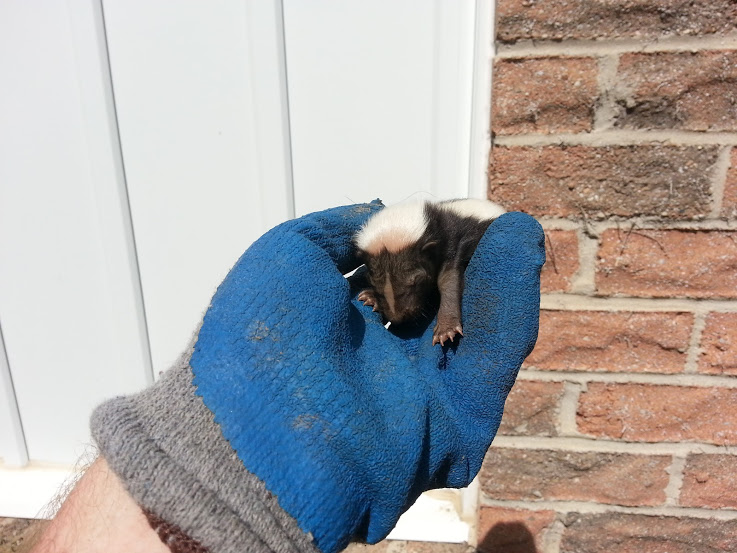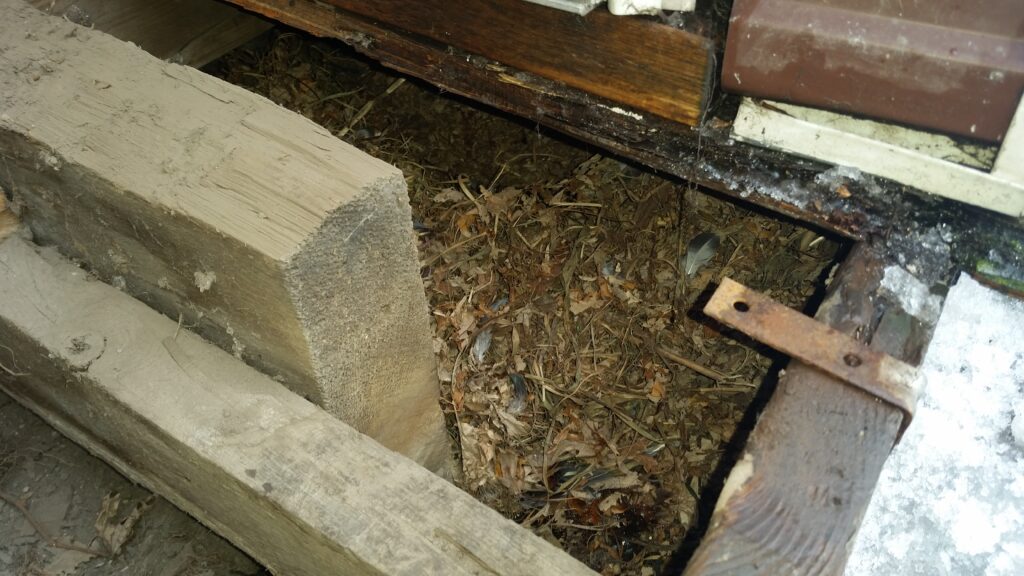Skunks are notoriously problematic critters to have on your property or in your home. While some people will characterize them as appearing cute or cuddly; but alot of homeowners think of them as stinky critters you don’t want to mess with. Skunks are very active during the spring and summer birthing season and this is when there is a good chance they might take up residence in your home or property. Stopping these unwanted visits can be done in different ways. A DIY approach requires knowledge of the enemy, plenty of which you can find if you keep reading. The recommended method is to contact a professional animal control service in your area.

Important Skunk Facts
When talking about skunks, it is wise to learn more about their behavior. Skunk behavior is best remembered when divided into several categories:
- Spraying
- Digging
- Reproduction
- General activity
Spraying
When threatened, skunks will release a powerful odour via their anal glands. Spraying is not their first method of defense when protecting their young or feeling threatened. Skunks will first resort to warning the threat by stomping the ground, shaking their tail, fluffing their fur, spitting and growling. If the perceived attacker does not leave, that is when the critter will turn around and release its spray.
Skunk smell, especially a direct spray, can be incredibly powerful. It is a real nightmare to remove from yourself or your dog should they run into a skunk in the backyard. The spray can also make its way into houses and cling to clothes, carpet and furniture if a skunk were to spray under an attached deck or porch.
Digging
Skunks are excellent diggers as they have long nails and strong forefeet. They will dig in search of food like earthworms and grubs and will do so in golf courses, gardens and lawns. They are also notorious for digging under sheds, porches and decks to make their dens. Any structure without a foundation is a potential candidate for a skunk burrow.

Reproduction
Skunk socialization is highly uncommon, except for when mating season comes around. These furry critters will have litters containing between 1 and 7 pups anywhere from early April to early June. The babies are usually stashed away in hard to reach places like under rock or log piles, or man-made structures like front steps and patios.
General Activity
Even though skunks are mostly inactive during the coldest months of the winter, they do not hibernate. In order to secure enough warmth, skunks will gather in communal dens during cold winter months. When winter passes, skunks will typically forage and live alone. They are most active at night. They are generally solitary creatures, with the exception of cold winter months and the mating season. Go to https://www.skedaddlewildlife.com/services/skunk/ for more info on skunk control.
Need Help With A Skunk Infestation On Your Property?
Skedaddle Humane Wildlife Control is a company with nearly three decades of experience when it comes to various wildlife infestations. Having pioneered countless humane removal techniques and methods, Skedaddle has helped more thousands of homeowners be free from unwanted wildlife invaders. If you are struggling with a skunk infestation on your property, call Skedaddle and let the professionals take care of the problem quickly, effectively and reliably.


